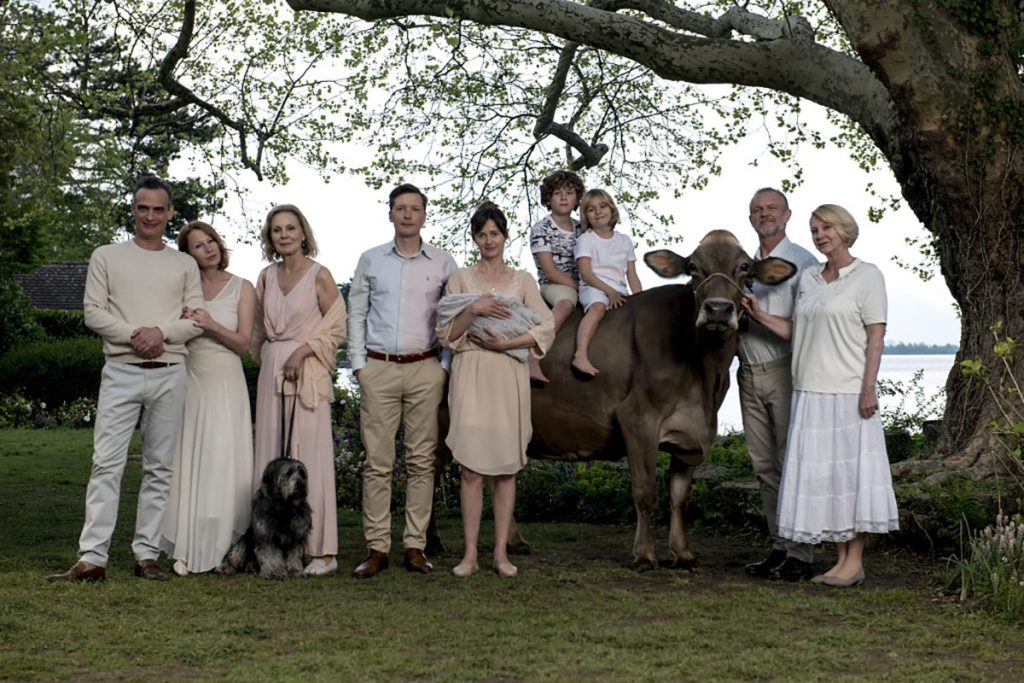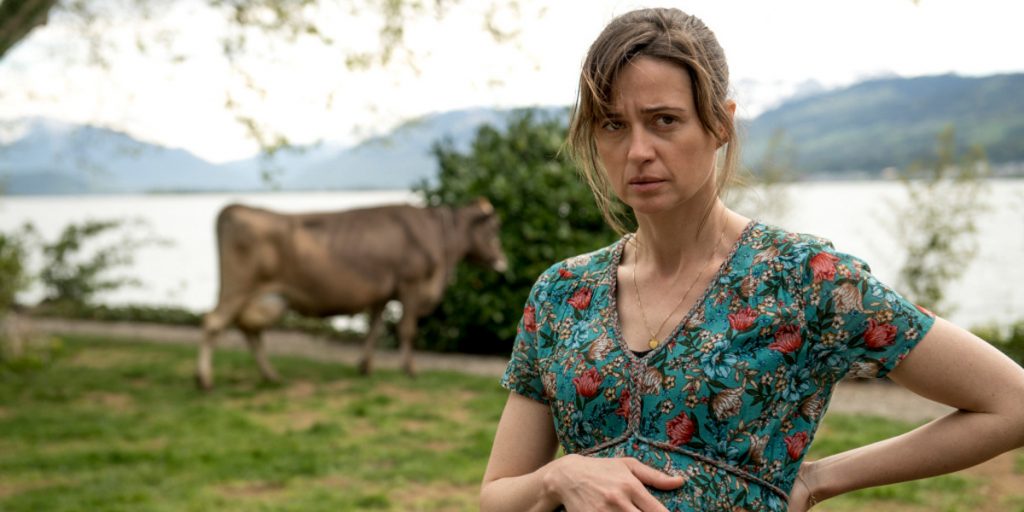Bettina Oberli’s My Wonderful Wanda aims to be a satirical comedy-drama about class, but suffers from a lack of focus and emotional impact.
As a comedy-drama, it takes a good while for the former to appear in Bettina Oberli’s My Wonderful Wanda (Wanda, mein Wunder). Divided into three episodes and an epilogue, it’s the latter that brings the lighter moments, whilst the other two focus more on the drama. But its moments of levity, if not outright ‘comedy’, don’t quite detract from the film’s shortfalls: unsuccessful socio-political commentary and satire that doesn’t have enough bite, a lack of attention on the titular Wanda (Agnieszka Grochowska), and an underdeveloped and somewhat unlikeable central family dynamic.
Wanda is a Polish carer who travels to Switzerland for three-month stints to care for 70-year-old Josef (André Jung), left paralysed after a stroke. Alongside her duties in caring for him, she’s asked by his wife Elsa (Marthe Keller) to undertake general upkeep of the house. After negotiating for a fairer pay increase, Wanda does as she’s asked, alongside the clandestine sexual favours she does for Josef for cash-in-hand, if you’ll pardon the pun. But then Wanda falls pregnant, and the tentative relationship she has with her employers starts to crumble and prejudices and familial secrets are brought to light.
My Wonderful Wanda is a film that wants to make a point about classism and xenophobia, and about the mistreatment of foreign ‘help’ by the upper echelons, but never quite manages to. Instead, it bogs itself down with family squabbles, eyebrow raising twists and a bizarre subplot involving a cow. There are scenes that induce chuckles, and scenes that induce winces, but it never really makes an impact beyond pleasant performances and an engaging enough script by Oberli and co-writer Cooky Ziesche. And it feels a tad bloated, the 111 minute runtime dragging slightly through the middle.

The film also struggles with emotional connection. The central focus, theoretically, should be Wanda, but out of the central cast – that includes Josef and Elsa’s children Gregior (Jacob Matschenz) and Sophie (Brigit Minichmayr) – the least amount of time is spent with Wanda. It’s a shame, as her perspective might have aided the film’s misgivings and provided a central emotional focus. Instead, her individual relationships with each member of the family are explored from the opposing side, and so the audience is never really privy to Wanda’s motivations, despite an effective performance from Grochowska. She’s unwittingly involved in family squabbles, and dragged into each character’s individual problems: Josef and Elsa’s marriage, Gregior’s unwillingness to succeed as head of the family business, and Sophie’s bitterness over her inability to conceive a child. The film tries to incite sympathy for characters that remain pretty unlikeable despite Oberli and Ziesche trying hard to develop them from more than one-dimensional tropes.
Overall, My Wonderful Wanda is pleasant, but not particularly remarkable, and would have benefited from a tighter edit, a sharper script, and a clearer focus on its central character.

